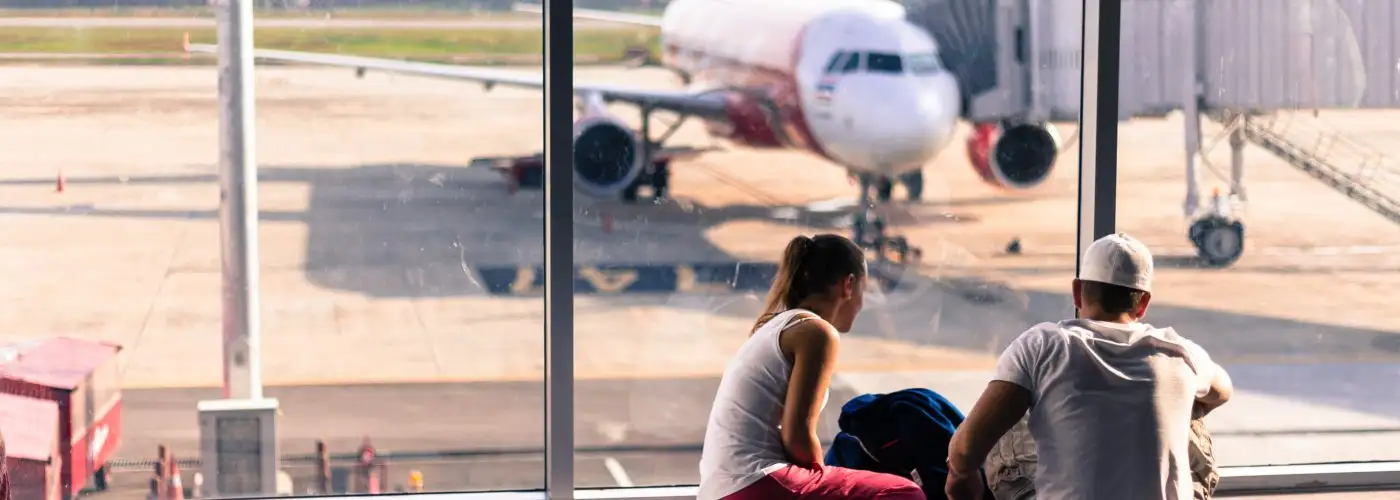In what will likely be one of its final major moves under the current Obama administration, the Department of Transportation this week revealed a new set of rules governing various aspects of airline behavior. Here’s how DOT Secretary Anthony Foxx described the new rules:
Airline passengers deserve to have access to clear and complete information about the airlines they choose to fly and to expect fair and reasonable treatment when they fly. The actions we’re taking today and in the coming months will expand aviation consumer protections we have previously enacted. These actions will enable passengers to make well-informed decisions when arranging travel, ensure that airlines treat consumers fairly, and give consumers a voice in how airlines are regulated.
The DOT actions fall under two broad headings: those that promote competition, and those that protect consumers. The highlights:
- Refunds for substantially delayed bags. This would extend the requirement that airlines reimburse travelers’ checked-bag fees when bags are lost. So far, there no definition for “substantially.”
- Fuller bag-delivery reporting. Airlines will be required to report the number of mishandled bags as a percentage of total checked bags, rather than as a percentage of passengers overall.
- Airlines must report flight data for their code-share partners.
- Airlines must report incidents of mishandling wheelchairs.
- Online travel agencies and other ticket-sellers must disclose any special relationships that result in biasing search results in favor of a particular airline.
The new reporting rules take effect on January 1, 2018, while the biasing-disclosure rule is effective 30 days after it’s published in the Federal Register.
The New Regulations’ Real Effects?
A fact sheet released by the White House is headlined as follows: “Obama Administration Announces New Actions to Spur Competition in the Airline Industry, Give Consumers the Information They Need to Make Informed Choices.” So, do the new rules deliver on that promise?
Indeed, more transparency is always better than less transparency, and the additional reporting requirements would appear to provide consumers a fuller picture of the performance of airlines they might be considering booking. But the bulk of the additional data is relegated to the Department’s monthly Air Travel Consumer Report. In practice, very few consumers are aware of the report, and fewer still use it in their travel planning. The consumer benefits of the fuller reporting are thus more hypothetical than real.
The biasing-disclosure rule is a no-brainer: Of course, any relationships that would skew the results of a supposedly objective flight search should be stated up front. Formalizing that requirement is both sensible and necessary.
There is, then, at least a modicum of good news for travel consumers in this latest initiative. But in the end, the Department’s claims to have made significant improvements in consumer protection are overblown. At best, it’s a baby step in the right direction.
Reader Reality Check
Feel better, now?
More from SmarterTravel:
- 21 Things Flight Attendants Hate About You
- Need Help from an Airline? Don’t Bother Tweeting
- 4 Ways to Earn Loyalty Points for Airbnb Stays
After 20 years working in the travel industry, and 15 years writing about it, Tim Winship knows a thing or two about travel. Follow him on Twitter @twinship.
We hand-pick everything we recommend and select items through testing and reviews. Some products are sent to us free of charge with no incentive to offer a favorable review. We offer our unbiased opinions and do not accept compensation to review products. All items are in stock and prices are accurate at the time of publication. If you buy something through our links, we may earn a commission.
Related
Top Fares From
Today's Top Travel Deals
Brought to you by ShermansTravel
Greece: 9-Night Vacation, Incl. Meteora &...
Exoticca
 vacation
$2099+
vacation
$2099+
New Year Sale: Luxe, 9-Nt Alaska...
Oceania Cruises
 cruise
$3599+
cruise
$3599+
Ohio: Daily Car Rentals from Cincinnati
85OFF.com
 Car Rental
$19+
Car Rental
$19+




